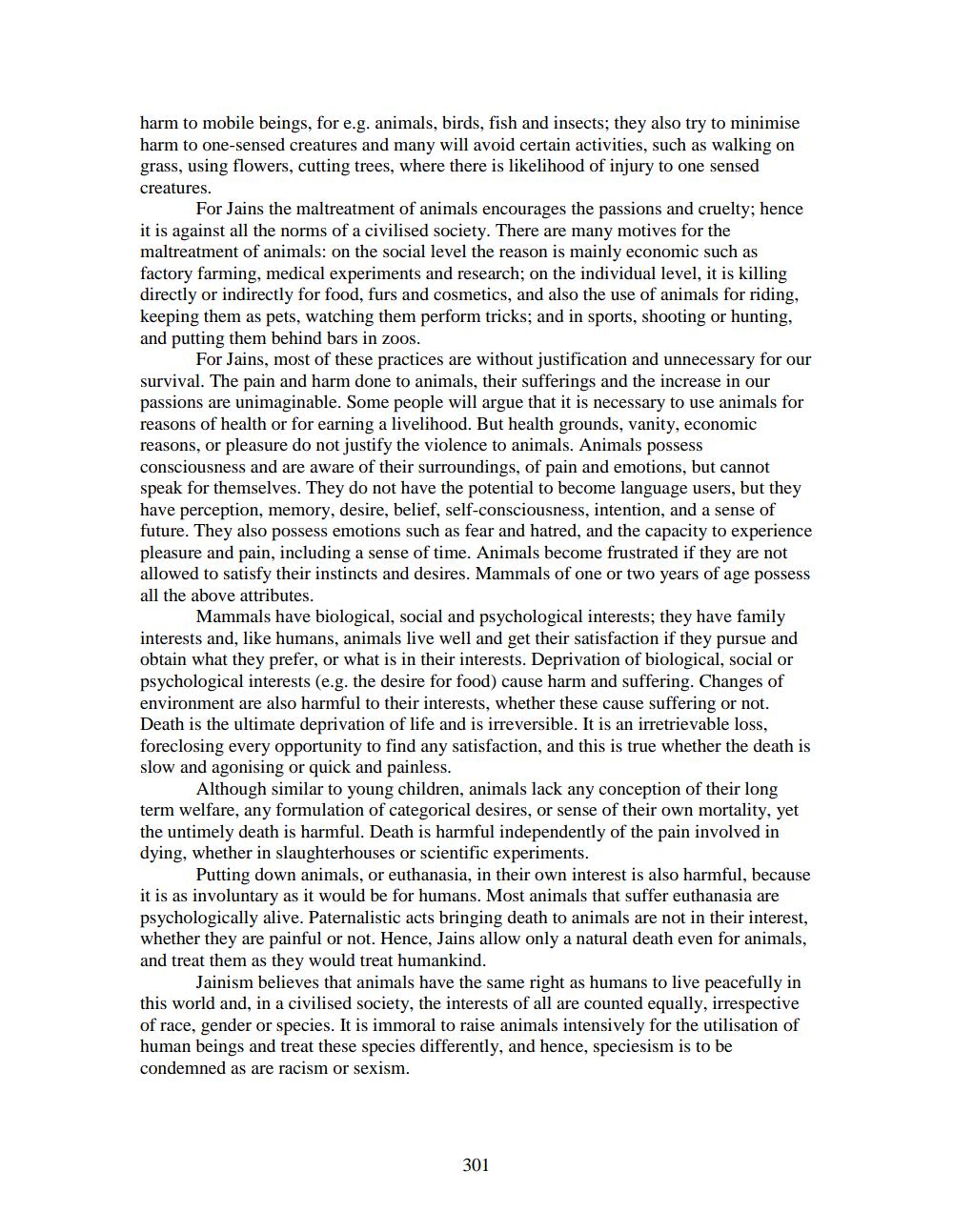________________
harm to mobile beings, for e.g. animals, birds, fish and insects; they also try to minimise harm to one-sensed creatures and many will avoid certain activities, such as walking on grass, using flowers, cutting trees, where there is likelihood of injury to one sensed creatures.
For Jains the maltreatment of animals encourages the passions and cruelty; hence it is against all the norms of a civilised society. There are many motives for the maltreatment of animals: on the social level the reason is mainly economic such as factory farming, medical experiments and research; on the individual level, it is killing directly or indirectly for food, furs and cosmetics, and also the use of animals for riding, keeping them as pets, watching them perform tricks, and in sports, shooting or hunting, and putting them behind bars in zoos.
For Jains, most of these practices are without justification and unnecessary for our survival. The pain and harm done to animals, their sufferings and the increase in our passions are unimaginable. Some people will argue that it is necessary to use animals for reasons of health or for earning a livelihood. But health grounds, vanity, economic reasons, or pleasure do not justify the violence to animals. Animals possess consciousness and are aware of their surroundings, of pain and emotions, but cannot speak for themselves. They do not have the potential to become language users, but they have perception, memory, desire, belief, self-consciousness, intention, and a sense of future. They also possess emotions such as fear and hatred, and the capacity to experience pleasure and pain, including a sense of time. Animals become frustrated if they are not allowed to satisfy their instincts and desires. Mammals of one or two years of age possess all the above attributes.
Mammals have biological, social and psychological interests: they have family interests and, like humans, animals live well and get their satisfaction if they pursue and obtain what they prefer, or what is in their interests. Deprivation of biological, social or psychological interests (e.g. the desire for food) cause harm and suffering. Changes of environment are also harmful to their interests, whether these cause suffering or not. Death is the ultimate deprivation of life and is irreversible. It is an irretrievable loss, foreclosing every opportunity to find any satisfaction, and this is true whether the death is slow and agonising or quick and painless.
Although similar to young children, animals lack any conception of their long term welfare, any formulation of categorical desires, or sense of their own mortality, yet the untimely death is harmful. Death is harmful independently of the pain involved in dying, whether in slaughterhouses or scientific experiments.
Putting down animals, or euthanasia, in their own interest is also harmful, because it is as involuntary as it would be for humans. Most animals that suffer euthanasia are psychologically alive. Paternalistic acts bringing death to animals are not in their interest, whether they are painful or not. Hence, Jains allow only a natural death even for animals, and treat them as they would treat humankind.
Jainism believes that animals have the same right as humans to live peacefully in this world and, in a civilised society, the interests of all are counted equally, irrespective of race, gender or species. It is immoral to raise animals intensively for the utilisation of human beings and treat these species differently, and hence, speciesism is to be condemned as are racism or sexism.
301




